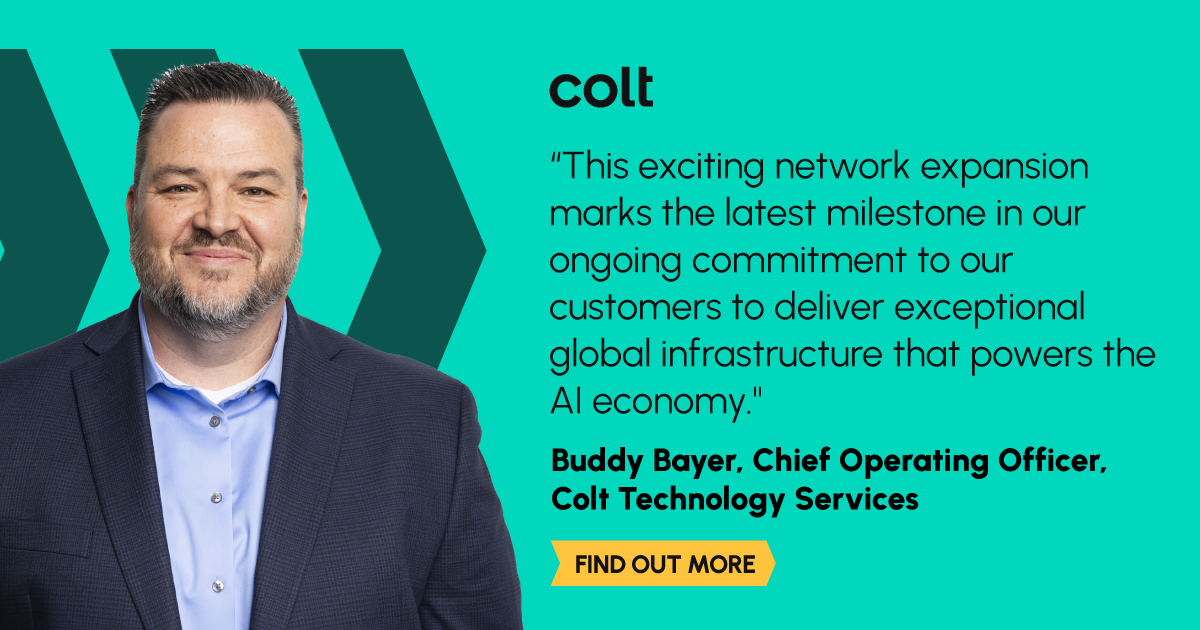exceptional infrastructure.
extraordinary
outcomes.

1,100+
Connected Data centres
230+
Connected cities
250+
Cloud PoPs worldwide
58
GLOBAL NPS
32,000+
buildings connected
1,100+
Connected Data centres
230+
Connected cities
250+
Cloud PoPs worldwide
58
GLOBAL NPS
32,000+
buildings connected
Trusted by the worlds leading companies
































Why Colt
We’re committed to simplifying complexity.
Delivering a future where every interaction is effortless.
Where complexity disappears and progress happens instantly.
GAIN TIME TO FOCUS ON WHAT MATTERS.
Network as a Service gives you time to focus on what matters most, along with the control, reach, security and flexibility your business needs.


Beyond connectivity: a broader vision for enabling AI readiness
Basic connectivity and standalone network services are no longer fit for purpose; enterprises seek greater value from their technology providers as they transform their organisations for the Inference Age.
THE JOURNEY TO QUANTUM SAFE NETWORKING.
How to protect your vital information as it traverses across sites, global networks and cloud.

Customer Stories
"It's important to us to make asset delivery as easy as possible for film producers & to create a level playing field. We are very happy to rely on Colt’s expertise for over 15 years."

Colt’s high-bandwidth cloud connectivity service has made it possible for us to transmit large volumes of reservation and ticketing data to our analytics system quickly and reliably.

"Colt’s high-quality, low-latency network infrastructure and 24/7 support give us peace of mind and allow us to focus on delivering the excitement of sports.”

Our industry expertise
CapItal Markets
Flexible network services to help you weather disruption and stay competitive.
Manufacturing
Bridging the IT and OT worlds to deliver for your people and customers.
Pharma
Secure, global and trusted digital infrastructure to stay ahead of the competition.
Retail
Delight your customers, manage remote sites and deliver a memorable experience.
Defence
Transform digital infrastructure, build in security and boost resilience.
Transport
and logistics
Trusted, secure digital infrastructure solutions wherever you need it.
Related Insights
The extraordinary everyday.
By tackling the complexities and frustrations of the everyday, we take away the grind - making room for the extraordinary.

















